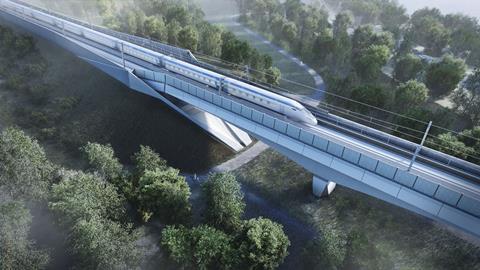
UK: Delays to High Speed 2 along with other transport schemes have been confirmed by Secretary of State for Transport Mark Harper, who said ‘we have seen headwinds from inflation, triggered by the impact of Putin’s illegal war in Ukraine, as well as supply chain disruption as the global economy recovers from the effects of Covid-19’.
In a written statement to parliament on the late afternoon of March 9, Harper said:
- the government is prioritising an initial HS2 service between Old Oak Common and Birmingham Curzon Street; the Department for Transport said opening is envisaged in the early 2030s;
- the government will ‘take the time to ensure we have an affordable and deliverable’ design for London Euston, which would be delivered ‘alongside high speed infrastructure to Manchester’;
- the High Speed Rail (Crewe – Manchester) Bill will proceed; this section ‘will also form the foundations for improved rail services in the north through Northern Powerhouse Rail’;
- HS2 Phase 2a between Birmingham and Crewe will be delayed by two years, as a result of ‘significant inflationary pressure and increased project costs’. DfT said the time will be used to rephase construction and optimise future delivery of Phase 2a in the most cost-effective way;
- ‘work continues on progressing commitments made in the Integrated Rail Plan to develop HS2 East’ between the West and East Midlands, and to consider ’the most effective way to take HS2 trains to Leeds’.
Commenting on the statement, Harper said the government ‘sees transport investment as a down payment on the country’s future’, but ’we can’t ignore the current realities. Putin’s war in Ukraine has hiked up inflation, sending supply chain costs rocketing. The responsible decisions I’ve outlined today will ensure we balance the budget at the same time as investing record sums in our transport network to help halve inflation, grow the economy and reduce debt.’
Responses
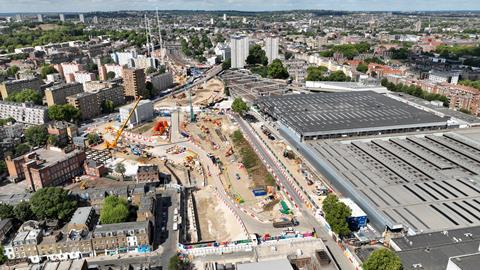
Labour’s Shadow Transport Secretary Louise Haigh said ‘Conservative chaos and chronic indecision is holding back jobs, growth and costing the taxpayer. This is the biggest project in Europe and delays pile costs up in the long-run — ministers now need to come clean on precisely how much their indecision will cost taxpayers and the north.’
Haigh tweeted that making the announcement in a written statement at nearly 17.00 was ’an outrageous attempt to avoid scrutiny, and shows sheer contempt for Parliament and the public’.
Chair of Transport for the North, Lord McLoughlin, said he had been reassured by the Transport Secretary ‘that we are still getting HS2 to Manchester’ and the commitment to NPR was welcome. ‘However, it needs to be understood whether or not these cost savings can be realised while still achieving the same desired outcome and conditional outputs. The government needs to avoid being penny wise and pound foolish, as delays don’t necessarily lead to savings, and in fact can drive costs upwards.’ He said political leaders in northern England ‘have made their collective position very clear — we must transform the north by building both HS2 and NPR in full.’
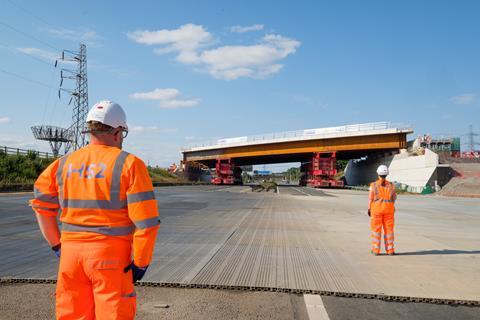
Railway Industry Association CEO Darren Caplan said ‘it is clearly disappointing to hear of this delay, which seems to prioritise short-termism over a structured, long-term strategy for what is Europe’s biggest infrastructure project’. He said the ‘stop-start approach’ was an inefficient use of money which ‘could ultimately drive the project’s costs up’. RIA urged the government ’to push on with delivering the full HS2 scheme, including the Eastern Leg and the Golborne Link [between Crewe and the Wigan area], or its replacement, as soon as possible’.
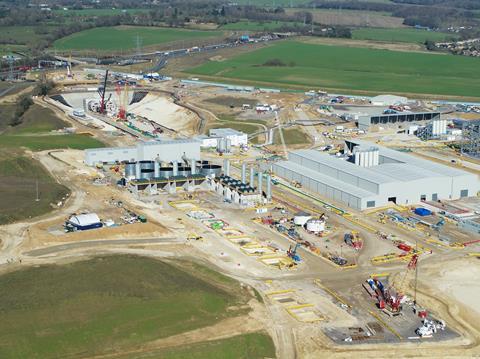
Rail Partners CEO Andy Bagnall said ‘it is critical for Britain’s economy and meeting net zero targets that large sections of HS2 are not delayed which will ultimately increase the overall cost. We must address industry financial challenges across infrastructure and operations head on — not focusing solely on cost reduction, but also on driving revenues to close the financial gap and reduce the railway’s reliance on taxpayer funding.’
Rail Freight Group Director General Maggie Simpson said the announcement was ‘hugely disappointing’, as the West Coast Main Line ‘is the most important route for rail freight in the country’ and the delay to phases 2A and 2B ’will seriously impact on the available capacity, particularly if new HS2 trains are now forced onto the existing tracks’.
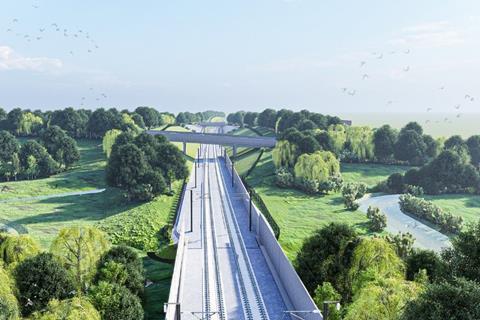
The Institution of Civil Engineers’ Trustee for Policy & External Affairs Jonathan Spruce said projects like HS2 ‘are an investment in our future, not a cost. The UK needs to think strategically about what we want our transport system to deliver. In the longer term, a national transport strategy, with a clear investment plan, would help ensure that the country gets the transport infrastructure it needs.’
The TSSA trade union said ’ditching or delaying parts of HS2 just goes to show the poverty of ambition we see all too often when it comes to this government and our railways’.
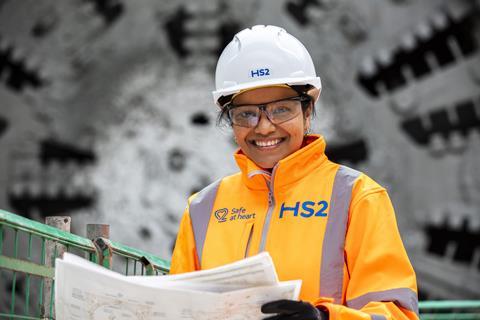
Kate Jennings, Director of Policy at Logistics UK, said ‘the conventional rail network is at capacity; HS2 is the greatest opportunity for delivering a substantial increase in capacity for rail freight in the UK. Once operational, HS2 has the potential to release capacity on the existing network for up to 144 extra freight trains per day. With rail traditionally greener than other transport modes, and each freight train able to do the job of 77 HGVs, maximising the capacity for modal shift to rail is vital for meeting decarbonisation targets.’
Business Travel Association CEO Clive Wratten said the delay ‘is a sure-fire detonation to the UK’s levelling up agenda. Reliable transport networks are not a luxury but a necessity. People outside London are being forced into their cars by inadequate rail infrastructure. HS2 was meant to be part of the solution to modernise travel networks. This delay not only puts this in peril but also bears serious consequences for the UK’s economic recovery post-pandemic.’



